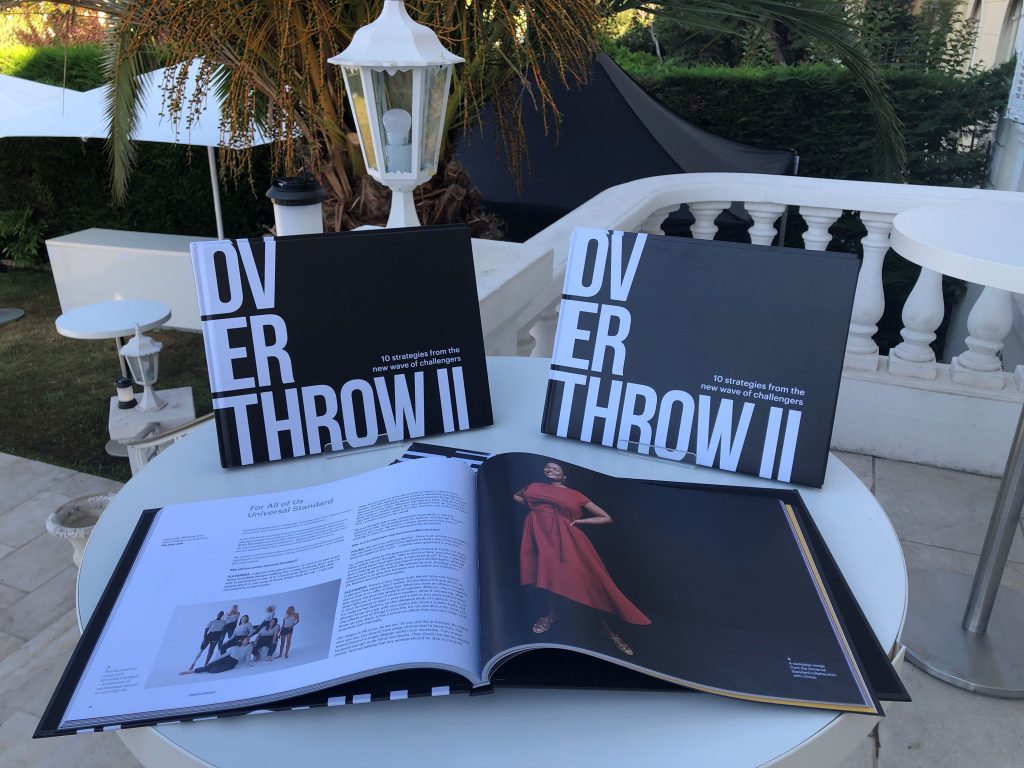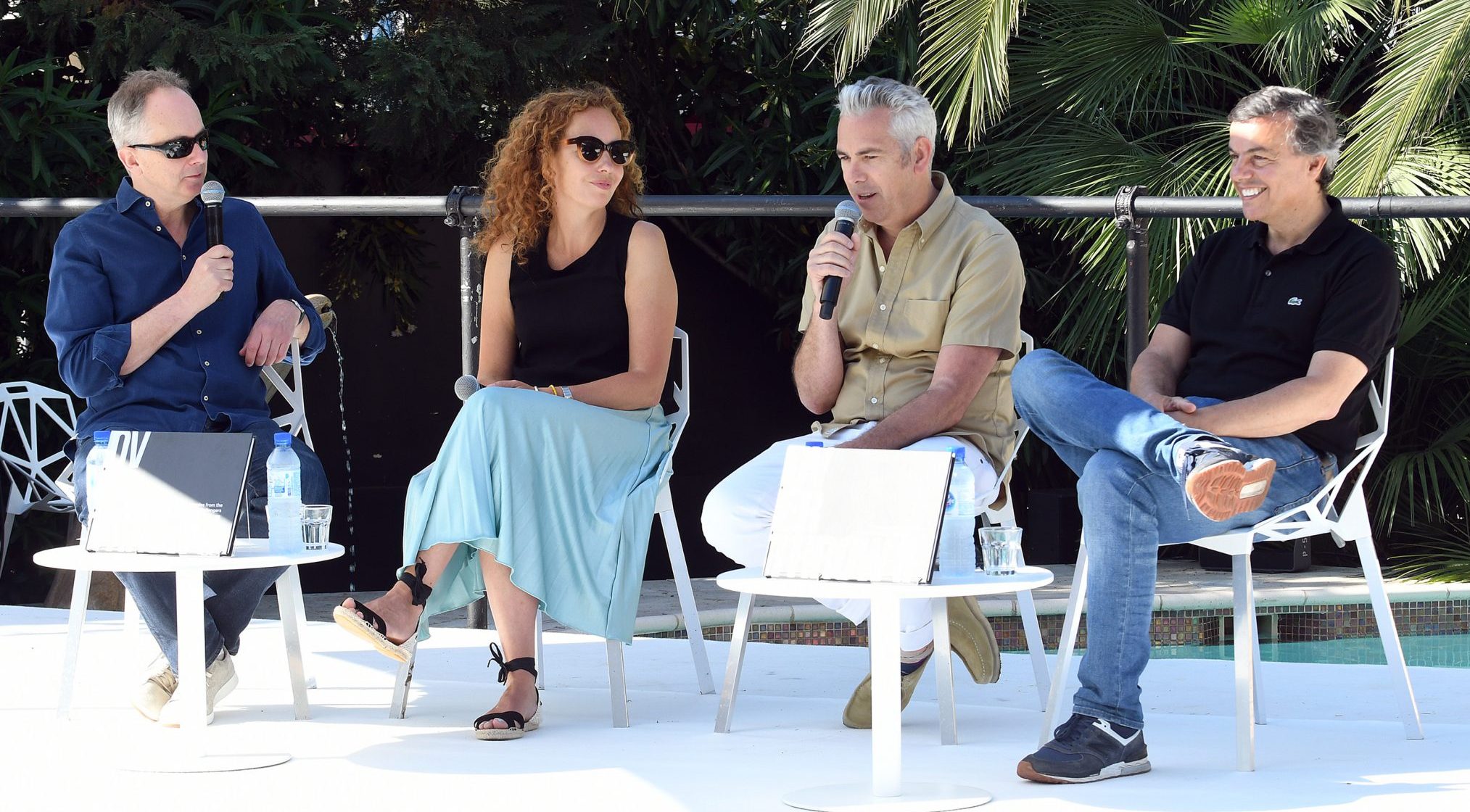A provocative new breed of challenger brand has exploded on to the global market in recent years. The growth of these challengers has been called the “marketing megatrend” of our age by Adweek, while a study of IRI data revealed that between 2011 and 2016, some US$22bn of spending in the packaged goods sector transferred from big brands to challenger brands.

Overthrow II – 10 strategies from the new wave of challengers is available for purchase from overthrow2.com
PHD decided that this was a good time to launch its second book on challenger brands – “Overthrow II – 10 strategies from the new wave of challengers”, co-written by Adam Morgan, founder of consultancy eatbigfish, and PHD’s Chief Strategy Officer for EMEA, Malcolm Devoy.
To support the launch, PHD staged a panel discussion at the Cannes Lions festival. Morgan interviewed three leading marketers involved with iconoclastic challenger brands. All are on a mission to overthrow the norms of marketing and change the destructive, exploitative nature of consumer capitalism.
Pascal van Ham, Head of Marketing at Dutch brand Tony’s Chocolonely, described the company’s central mission as ending the exploitation of child labour in the chocolate supply chain. The brand was created in 2005 by three journalists determined to campaign for greater transparency and fairness in the way chocolate is made. Chocolonely bars lead their market in The Netherlands and the brand has now launched in nine countries.
“We are not a normal company; we are an impact company making chocolate. We use chocolate as a change agent to end modern slavery and illegal child labour in the chocolate industry,” van Ham explained.
The brand has campaigned for new legislation forcing companies to be transparent about their supply chains and to research the risks of illegal child labour. Van Ham dressed up in a chocolate bar suit with her team all wearing Tony costumes to present a petition supporting the motion to politicians.
“It was fun dressing up in Tony costumes. People were thinking: ‘What is happening here?’ They felt sympathy. For me as marketing director, doing this is representing our culture.
“We take our mission seriously but we don’t take ourselves very seriously,” she said.
“We are one big team, but we only realise our mission if we mobilise people, and that starts with ourselves,” she added. She said the brand seeks to disrupt the norms of chocolate marketing and uses creativity and fun ideas to promote a serious message.
Another brand which is challenging the rules of the food industry is Oatly, the Swedish oat milk brand created after researchers discovered lactose intolerance. The brand positions itself against the dairy industry, declaring that cows’ milk is for baby cows, whereas Oatly is for humans.
John Schoolcraft, Creative Director at Oatly, was iconoclastic in his rejection of the rules of marketing. He told the audience: “My background is in advertising but I don’t really like advertising, and I don’t even really like marketing. And I don’t really believe in selling products to people.”
Asked what Oatly is rebelling against, he replied: “We are challenging everything. The food production system is broken. The things that go into products and the lack of transparency are mind-blowing.”
He felt a lot of people at the Cannes festival were thinking about ways of selling, but said: “We don’t even talk about selling – we talk about systematic change in the world. If we sell products along the way, that’s great.”
The company was sued by the Swedish dairy industry for portraying cow’s milk as unhealthy. “You can lay down flat or stand up to them, so we took out full page ads in Swedish newspapers, we posted the lawsuit online and kept everything transparent. That was a very fearless move. That was the day we became fearless,” he told the discussion.
Undeterred, Oatly has launched its ad campaign in the UK with the claim: “It’s like milk but made for humans.”
Meanwhile, another keen supporter of cause-led challenger brands is Elio Leoni Sceti, a lifelong consumer marketer at Reckitt Benckiser who rose to become chief executive of EMI music and Igloo Birds Eye Foods. He told the discussion about The Craftory, an investment fund he has helped create for challenger brands. The Craftory invests in established, purpose-driven brands across five causes – democratising access, championing self-esteem, creating social progress, delivering good health and building sustainable progress.
“We look at brands with a founding team that has a fire in their belly to deliver on one of those missions. We invest behind that desire,” he said.
The company is challenging two establishments – first the consumer goods industry, which Sceti says is very good at promoting consumption but has failed to communicate the consequences of that consumption. But it is also confronting the financial investment industry, which is failing to serve the growth of cause-related challenger brands.
The term challenger brand once referred to the likes of Pepsi-Cola or Avis, which took on established brand leaders. Today, many challengers are engaged in something far more fundamental than vying for market share. They are seeking to transform not just the way we consume brands, but the nature of capitalism itself.
Overthrow II launches Thursday, 20th June and is available for purchase from overthrow2.com.



